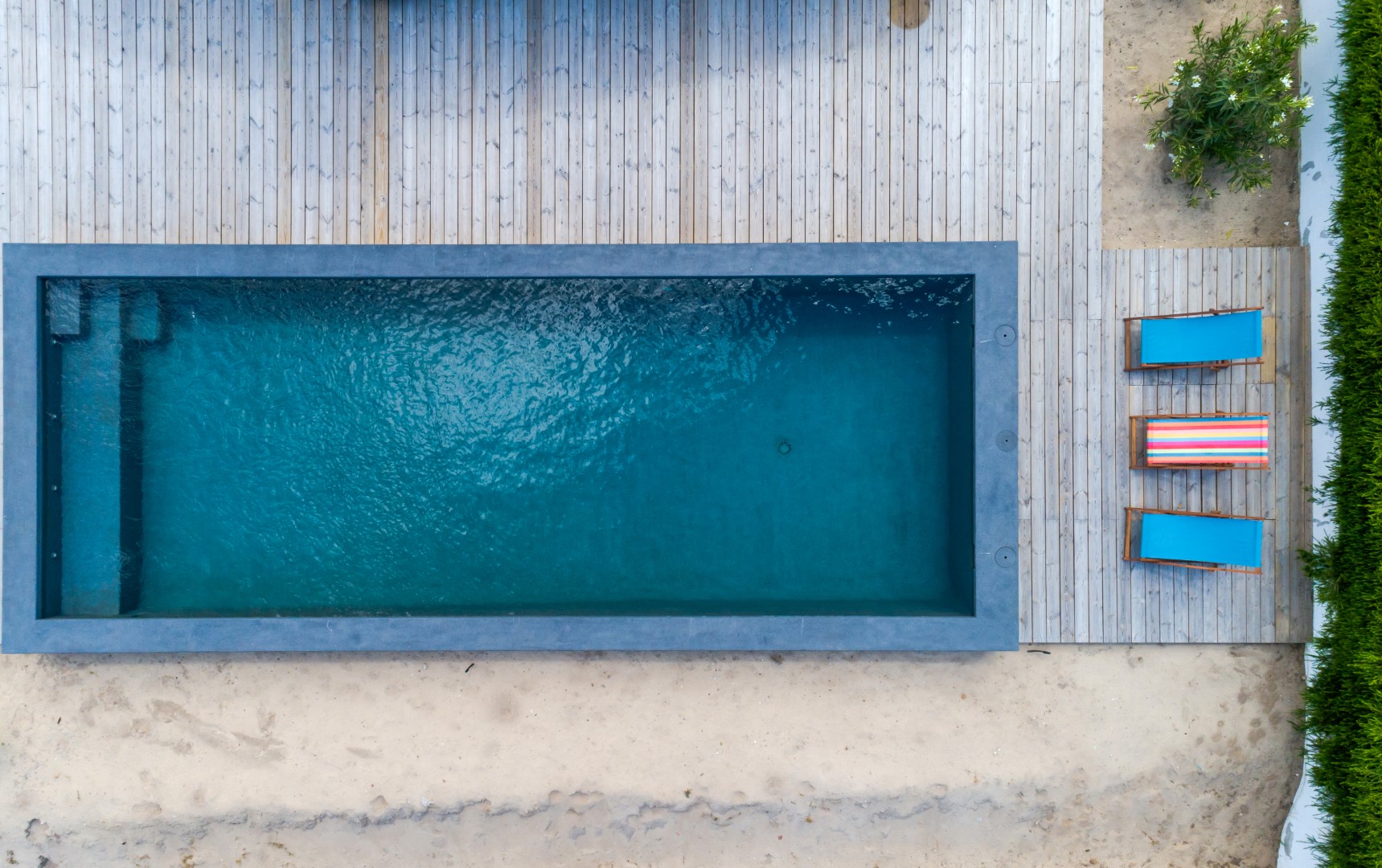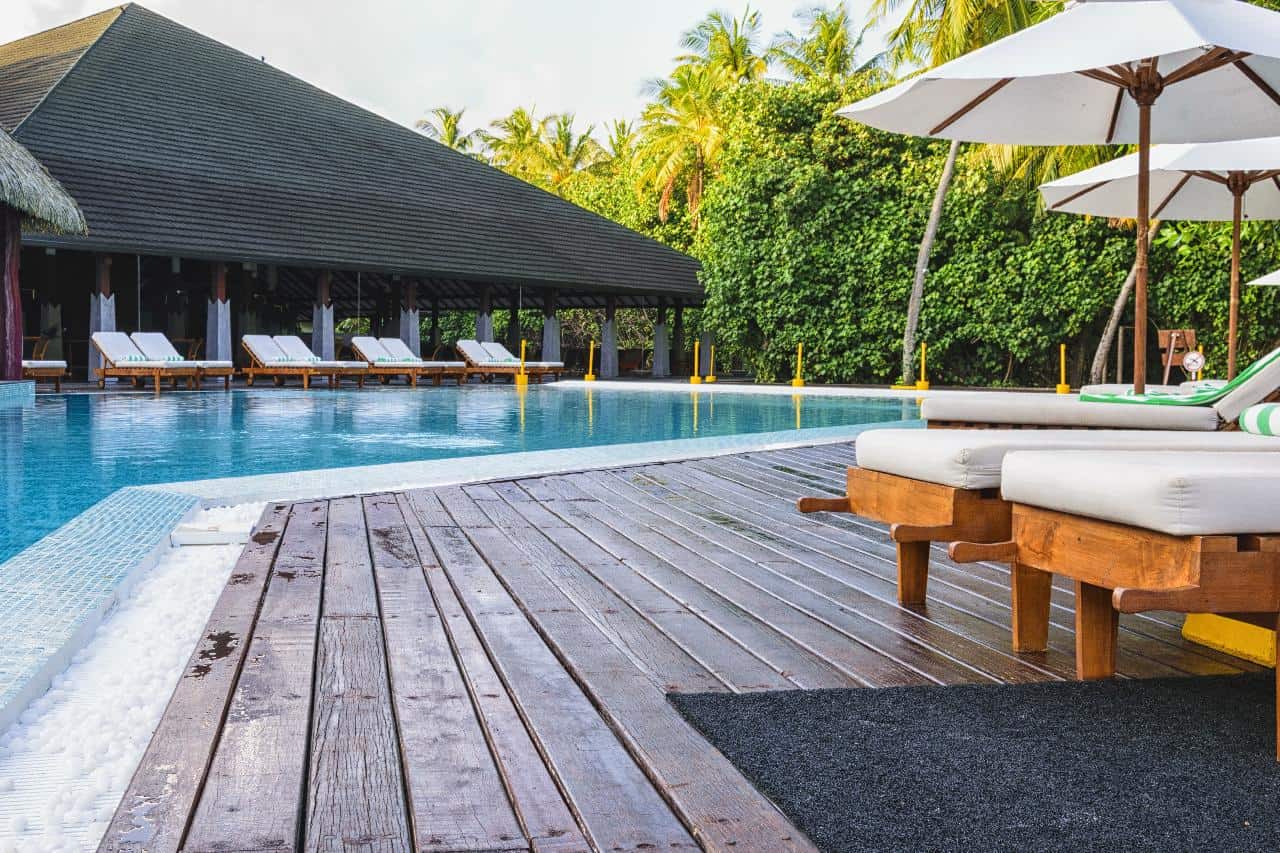Imagine a hot summer day with the sun blazing, the air heavy, and all you want is a refreshing swim. For many homeowners, this isn’t just a dream because of the option to install a pool. Recently, fibreglass pools have become very popular. They’re known for being durable, easy to maintain, and quick to install. But what does owning a fibreglass pool actually involve, and is it the right choice for you? We’ll dive into the world of fibreglass pools, covering everything from how they’re made to what it’s like to have one, to help you decide if it’s the right addition to your home.
The Rising Trend of Fibreglass Pools
Fibreglass pools have undergone a remarkable transformation, earning a place as one of the most sought-after pool types for residential use. This surge is due in part to the material’s flexibility and cost-effectiveness, making it accessible to a wider market. Unlike traditional concrete pools, which can take weeks or even months of labour to install, fibreglass pools can be set up in as little as a day. With this convenience, it’s no wonder they’re finding their way into more and more backyards.
The Material and Its Advantages
Fibreglass is a composite material made of glass-reinforced plastic. The combination of these materials gives fibreglass its strength and versatility. Pools made of this substance offer several key benefits that have propelled their popularity:
- Quick Installation: The prefabricated nature of fibreglass pools allows for speedy installation, minimising the disruption to your life during construction.
- Durability: Fibreglass resists cracking, meaning fewer repairs over time compared to concrete.
- Smooth Surface: The non-porous nature of fibreglass means a significantly reduced chance of algae growth and a lower need for chemical treatment.
- Eco-Friendly Options: Many manufacturers offer eco-friendly models that help conserve water and energy, addressing the growing concern for sustainability.
Owning a Fibreglass Pool: What to Expect
The reality of fibreglass pool ownership in newcastle is more than just about its material and initial cost. It involves an assessment of how you intend to use the pool, what ongoing maintenance is required, and how it fits into your overall property.
Maintenance Made Easy
A fibreglass pool is renowned for its low-maintenance demands. With routine cleaning, regular chemical checks, and the prevention of heavy, sharp objects coming into contact with the pool surface, you can expect a relatively stress-free maintenance schedule.
However, like any pool, it will need care. The gelcoat lining, while resistant to many types of damage, can still scratch or become worn with time. Ensuring you use soft-bristle brushes, maintaining proper chemical balances, and keeping up with a consistent cleaning timetable will help your pool stand the test of time.
Annual Costs and Upkeep
While the upfront cost of a fibreglass pool may be lower than that of a concrete one, it’s important to consider the full spectrum of expenses. From installation to maintenance, there are multiple costs associated with pool ownership.
- Installation: The actual installation of the fibreglass pool, with all its equipment and accessories, often comes in as the most significant initial investment.
- Energy Usage: Pumps, heaters, and lights will contribute to your energy bill, so it’s wise to choose energy-efficient models when possible.
- Chemicals: Algaecides, balancers, and sanitisers are necessary for keeping your pool safe and clean.
- Equipment Repairs: Pumps, filters, and heaters will require occasional maintenance or replacement.
By factoring in these ongoing expenses, you can make a more informed decision about the long-term affordability of a fibreglass pool.
Withstanding the Years
The longevity of your fibreglass pool depends significantly on how well you take care of it. Regular inspections can prevent minor issues from becoming major headaches.
Notably, fibreglass pools are not suitable for everyone. They are less flexible than vinyl when it comes to ground movement and can suffer more damage if the earth around them shifts. Therefore, it’s essential to ensure proper soil testing and preparation before installation.
Fibreglass Versus the Competition
To truly understand the benefits of a fibreglass pool, it’s helpful to compare it against its primary competitors: concrete and vinyl liner pools. Each type has its own set of advantages and drawbacks that can make a significant difference in the decision-making process.
Comparing Installation and Timeline
Concrete pools are notorious for their long installation times. The curing process alone can take several weeks. On the other hand, vinyl pools’ installation can be much faster, but they come with the risk of punctures and tearing. Fibreglass pools strike a balance with a relatively quick installation, combining durability with efficiency.
The Matter of Durability
Concrete pools are highly durable but are prone to algae growth in their porous surface if not correctly maintained. Vinyl pools can be the least durable due to the liner’s potential for damage. Fibreglass, with its smooth and non-porous surface, stands out as the middle ground, offering durability and ease of maintenance.
Customisation and Aesthetics
If you value a high level of customisation, concrete pools are typically the best option, allowing for any shape or size. Vinyl pools do not offer much flexibility post-installation. Fibreglass pools, while limited to the factory-made designs, often have a wide variety of styles and colours to choose from.
The Future of Fibreglass Pools
The pool industry is constantly evolving, and fibreglass pools are no exception. With advancements in materials science and pool design, the future looks bright for this type of pool. Here are some emerging trends and predictions for fibreglass pool technology:
- Advanced Materials: Ongoing research into new fibreglass composite mixes aims to further enhance strength and resistance.
- Smart Technology Integration: We can expect to see more smart technology options for fibreglass pools, including automated cleaning systems and remote-controlled operation.
- Sustainability Features: The demand for eco-friendly features is likely to drive the integration of solar heating and water-saving systems into fibreglass pool designs.
Making the Decision
Deciding to get a fibreglass pool depends on your needs and situation. Consider your property size, budget, and how much effort you want to put into maintenance. Do your homework on manufacturers and installers to get quality products and services.
A pool is a big investment but can offer years of exercise and relaxation benefits. With the right choice, you can make the most out of owning a fibreglass pool. These pools are manageable, offering luxury and convenience with proper care and installation. They’re great for eco-conscious owners or those wanting a quick installation, providing a valuable addition to your home.
Ready for a serene backyard oasis? A fibreglass pool might be just what you need. Take the time to research, work with professionals, and get set for endless poolside enjoyment.
Discover more from Futurist Architecture
Subscribe to get the latest posts sent to your email.


![modern apartment [article_title]](https://www.futuristarchitecture.com/wp-content/uploads/2025/04/8-Zen-Ideas-to-Spa-Your-Bathroom-Accessories-900x600.jpg)
